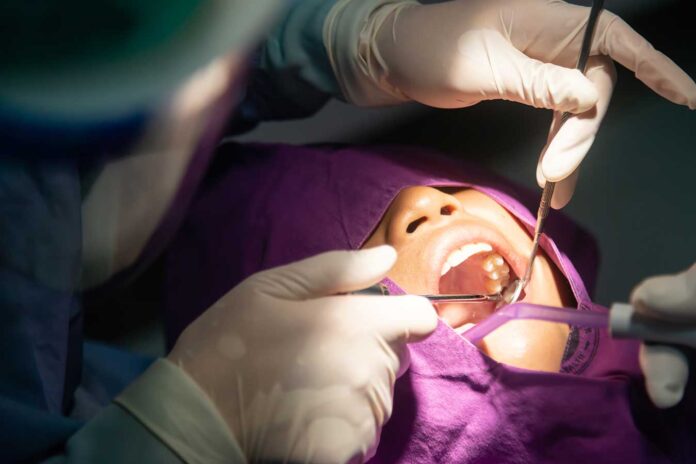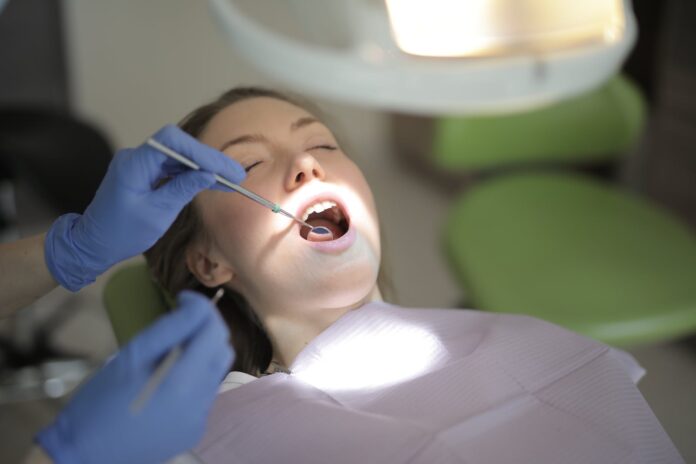Wisdom teeth, those mysterious molars at the back of our mouths, have been a topic of dental discussions for ages. Understanding their removal and the subsequent recovery is crucial for anyone facing this procedure.
In this piece, we’ll shed light on the positive aspects of wisdom teeth removal, ensuring you’re well-informed and ready for a smooth experience.
The Bachelor of Teeth: Wisdom Teeth Unveiled
Wisdom teeth, typically emerge between the ages of 17 and 25. Historically, they served a purpose in human evolution, aiding our ancestors in grinding down plant tissue.
However, as our diets and jaws have evolved, these teeth often don’t have enough room to grow properly, leading to various dental issues.
Many people experience impacted wisdom teeth, which means they don’t fully emerge due to lack of space. This can cause them to grow at odd angles, sometimes even horizontally, leading to pain, infection, and other dental complications.
On the brighter side, removing these problematic molars can pave the way for improved oral health. Thats where services, such as Wolli Creek Wisdom teeth removal services have been noted for their expertise in handling such procedures.
Fun Facts: Did you know that not everyone has wisdom teeth? About 45% of the population is born without one or more of these third molars.
The Removal Process

The decision to remove wisdom teeth often stems from issues like pain, infections, or potential future dental problems. There are undeniable benefits to the procedure, such as pain relief and prevention of more severe dental issues down the line.
The extraction can be categorized into two types: simple and surgical. Thanks to modern dental technology, the process has become less intimidating than it once was.
Pro tip: Always consult with your dentist or oral surgeon about the type of anesthesia that will be used during the procedure. It can range from local anesthesia to general anesthesia, depending on the complexity of the extraction.
Recovery Journey
Embracing the recovery period is a proactive step towards achieving better oral health. Generally, the initial recovery period lasts only a few days, but patients might need to continue taking it easy for about a week. Here are some tips to ensure a comfortable recovery:
- Manage Pain and Swelling: Over-the-counter pain relievers can be effective. Using a cold pack can also help reduce swelling.
- Dietary Adjustments: Stick to soft foods like yogurt and applesauce initially. Ensure you’re getting proper nutrition and staying hydrated to aid the healing process.
- Oral Hygiene: While you should avoid rigorous brushing near the surgical site for the first 24 hours, rinsing your mouth with warm salt water can be beneficial.
- Avoid Certain Activities: Refrain from strenuous activities that might disrupt the healing process and avoid using straws as the sucking action can dislodge the blood clot formed after extraction.
Dietary Delights

Recovery doesn’t mean you have to compromise on taste. There’s a plethora of soft, nutritious foods you can indulge in.
From creamy mashed potatoes to delectable smoothies, the options are endless. Remember, maintaining proper nutrition and hydration can significantly speed up the healing process.
Fun fact: Pineapples contain bromelain, an enzyme that can help reduce swelling!
The Bright Side
Beyond the immediate relief from pain and discomfort, there are several long-term benefits to removing wisdom teeth.
For starters, it reduces the risk of dental issues like crowding and misalignment. Additionally, without the hindrance of impacted teeth, maintaining oral hygiene becomes a breeze, leading to a healthier smile.
Myth Busting
There’s a lot of hearsay surrounding wisdom teeth removal. Many fear the procedure, thinking it’s excessively painful or unnecessary.
However, it’s essential to understand that the process is routine, safe, and often beneficial. Countless individuals have undergone wisdom teeth removal and have come out with positive outcomes, a testament to the procedure’s efficacy.
To wrap up this segment, always remember that every individual’s experience with wisdom teeth is unique.
It’s crucial to consult with a dental professional to get personalized advice tailored to your needs. Embrace the journey with a positive mindset, and you’ll be flashing that radiant smile in no time!”
Continuing the Journey
Post-recovery, many individuals find a noticeable improvement in their overall oral health. Gone are the days of persistent pain, and in its place, a newfound comfort emerges.
But the journey doesn’t end with recovery. It’s essential to continue with regular dental check-ups to ensure that the rest of your teeth stay in optimal condition.
The Power of Prevention
While the removal of wisdom teeth is a significant step, maintaining overall oral health is an ongoing process.
Regular brushing, flossing, and dental check-ups are paramount. Pro tip: Investing in an electric toothbrush can provide a more thorough clean, reaching those hard-to-get areas.
Seeking Professional Guidance

It’s always recommended to have a trusted dental professional by your side, guiding you through the complexities of oral health. They can provide personalized advice, tailored treatment plans, and the assurance of expert care.
FAQ
Why are they called “wisdom” teeth?
They are named so because they typically appear during the late teens to early twenties, an age associated with increased maturity or “wisdom.”
Is it possible to keep my wisdom teeth if they’re not causing any problems?
Yes, if your wisdom teeth are not impacted, causing pain, or leading to other dental issues, they can be left in place.
However, regular dental check-ups are essential to monitor their condition and ensure they don’t cause problems in the future.
Are there any age-related considerations when deciding on wisdom teeth removal?
While wisdom teeth removal can be done at any age, younger adults often experience quicker recovery and fewer complications.
As one ages, the procedure might become more challenging, and the healing process may take longer.
How often should I visit the dentist after my wisdom teeth removal?
Initially, a follow-up may be scheduled a week or two after the procedure to ensure proper healing.
After that, regular bi-annual dental check-ups are recommended to maintain overall oral health.
Final Thoughts

Wisdom teeth removal, while daunting for some, is a routine procedure with numerous benefits. Approaching the process with a positive mindset, armed with knowledge and professional guidance, can make all the difference.
Remember, every smile tells a story, and with the right care, yours can be a tale of radiant health and confidence.








